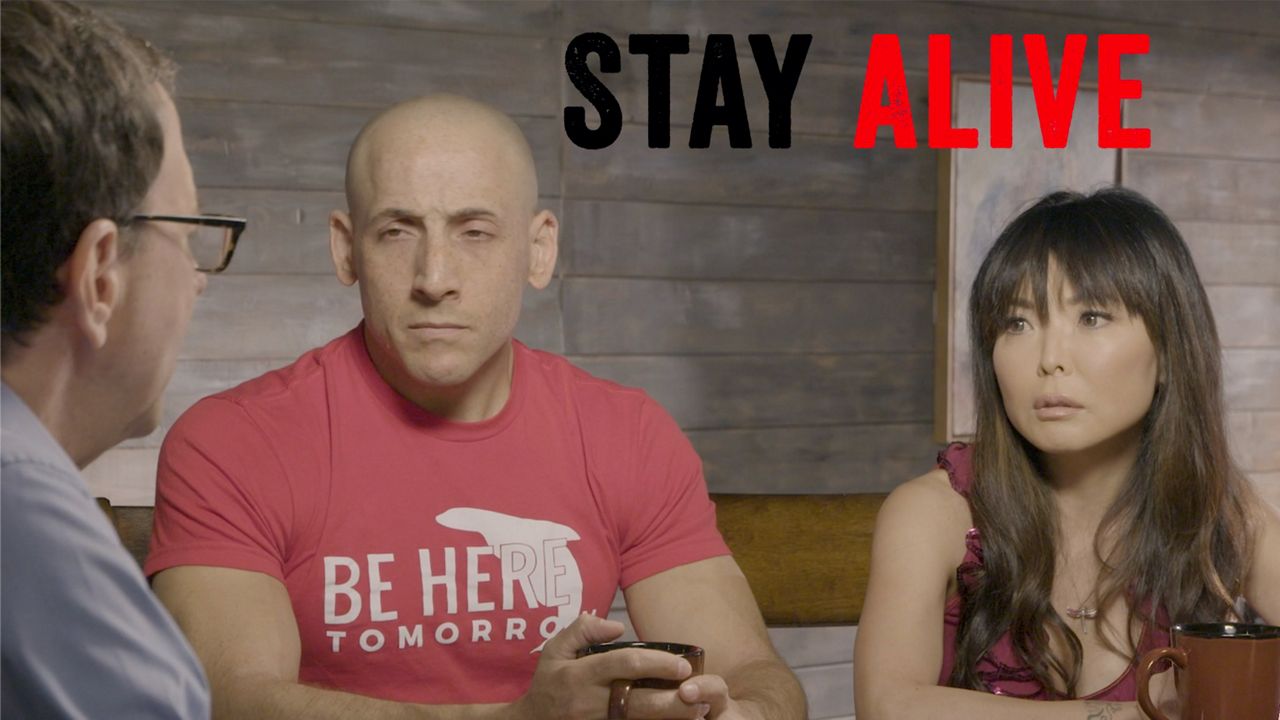MANHATTAN BEACH, Calif. — When Frank Kilpatrick, a resident of Manhattan Beach, retired from his career in marketing, he decided to take his skills as a communicator and apply them to public service.
He had spent years with his wife, Linda, helping pharmaceutical companies sign up patients for clinical trials. But once he and his wife had retired, and the pandemic raged, they launched public service announcements to help persuade hard-to-reach groups to get vaccinated.
His latest attempt to build awareness came as a producer of the documentary “Stay Alive: An Intimate Conversation About Suicide Prevention.”
The film has been streaming on Amazon Prime, and aims to get people talking and thinking about what many public health officials consider a vast and growing problem.
“We thought we could broaden the message, not just on suicide but on mental health in general,” Kilpatrick said. “There has been an epidemic in the last few years, with adolescents and, frankly, people of all ages.”
The federal government, along with local municipalities and school districts, has been heavily investing in solutions to safeguard mental health. Orange County has been funding Be Well OC, which provides a series of drug and alcohol treatment programs along with mental health services. Some school districts have adopted special mental health response teams who can quickly act to help students in crises. And the White House has issued support for mental health funding as it pushes its 988 mental health hotline. The Biden administration pledged $700 million to help staff and support the hotline in 2023.
But while the solutions to the problem are underway, Kilpatrick said the causes aren’t well understood, and he hopes his film will offer a way into deeper understanding of depression and suicidal thoughts.
“Depression is a complex issue and takes complex solutions. Is there enough awareness? Probably not,” he said.
Kilpatrick began developing the idea with Dr. Mark Goulston, the co-creator and moderator of the documentary. A former University of California, Los Angeles professor of psychiatry, FBI hostage negotiation trainer, suicide and violence prevention expert, Goulston helped provide much of the direction.
The documentary is not an exhaustive look into the cause of suicide and offers no conclusions.
“It’s not the study of suicide,” Kilpatrick said. “This is designed to be a conversation that provides ready access for the individual who perhaps hasn’t necessarily had a deep relationship with the topic or friends or family who suffer from some level of despair.”
Mental health has been a key point of conversation for many demographics in recent years from the elderly, to teens, to people who once worked in an office but now work from home. Kilpatrick hopes his documentary can help people of all types take inventory of their personal relationship to mental health and continue to search out answers.
“It’s a non-discriminatory illness,” he said. “It can strike anyone.”



